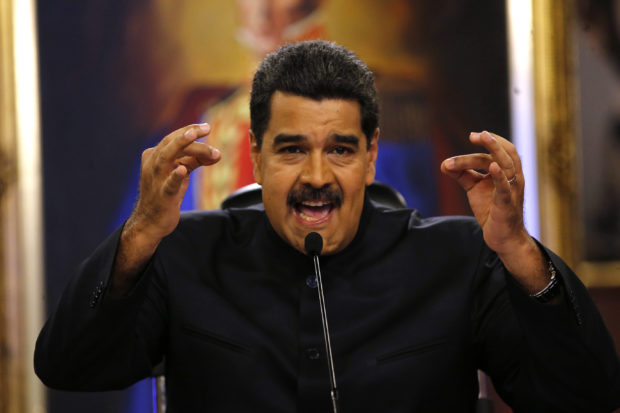US met Venezuela officers to discuss coup bid – NY Times
WASHINGTON — Administration officials met secretly with Venezuelan military officers to discuss plans to oust Venezuelan President Nicolas Maduro but eventually decided not to help, The New York Times reported on Saturday.
US President Donald Trump has been harshly critical of Maduro’s leftist regime, as Venezuela has spiraled downward into a grave economic and humanitarian crisis that has sparked violent protests and prompted a wave of emigration into nearby countries.
A National Security Council spokesperson told Agence France-Presse (AFP): “US policy preference for a peaceful, orderly return to democracy in Venezuela remains unchanged.”
Rebuilding democracy
“The United States government hears daily the concerns of Venezuelans from all walks of life . . . They share one goal: the rebuilding of democracy in their homeland,” said spokesperson Garrett Marquis.
Article continues after this advertisement“A lasting solution to Venezuela’s worsening crisis can only arise following restoration of governance by democratic practices, the rule of law and respect for fundamental human rights and freedoms,” he added.
Article continues after this advertisementThe Times, citing unnamed American officials and a former Venezuelan military commander who took part in the secret talks, said the coup plans stalled.
On Twitter, Venezuelan Foreign Minister Jorge Arreaza denounced “US government intervention plans and support for military plotting against Venezuela.”
“Right there in US media, new and disgusting evidence is there to see,” he said.
After drones laden with explosives blew up near Maduro at an Aug. 4 event in Caracas—he blamed the United States, Colombia and his domestic enemies—the US state department condemned the “political violence” but also denounced what it said were the arbitrary detentions and forced confessions of suspects.
‘No US gov’t involvement’
US National Security Adviser John Bolton insisted there was “no US government involvement” in the incident.
In August 2017, media reports said Trump asked top advisers about the potential for a US invasion of Venezuela.
Around the same time, he said publicly that he would not rule out a “military option” to end the chaos there.
The Times’ report included details from the secret meetings, citing 11 current and former US officials and a former Venezuelan military commander sanctioned by the US government who was involved in the secret meetings.
The Venezuelan military commander is one of many on the US government’s list of sanctioned Venezuelan officials accused of serious crimes, according to the Times.
The former commander told the Times at least three factions within the Venezuelan military were plotting against the Maduro government.
The Times reported that one such rebel group made initial contact with the US government through an American Embassy in a European capital city.
No negotiation
White House officials in Washington were at first worried that the meeting request was a setup in order to record a US official appearing to conspire against Maduro’s government, the Times reported.
But US officials finally felt the meetings were worth the risk as they watched the crisis in the Latin American country worsen, the Times reported.
The Trump administration sent a career diplomat with instruction to attend the meetings “purely on listening mode” and not to negotiate, a senior administration official told the Times.
From their first meeting held abroad in fall 2017, the diplomat made the assessment that the Venezuelan rebels did not appear to have a detailed plan, but instead were hoping the American government would provide guidance or ideas, the Times reported.
The former Venezuelan commander told the Times that the officers never sought US military intervention: “I never agreed, nor did they propose, to do a joint operation,” he told the newspaper.
During a second meeting last year, the officers requested encrypted radios for secure communication, the Times reported.
But senior officials declined the request, according to the newspaper. —Reports from AFP and CNN
